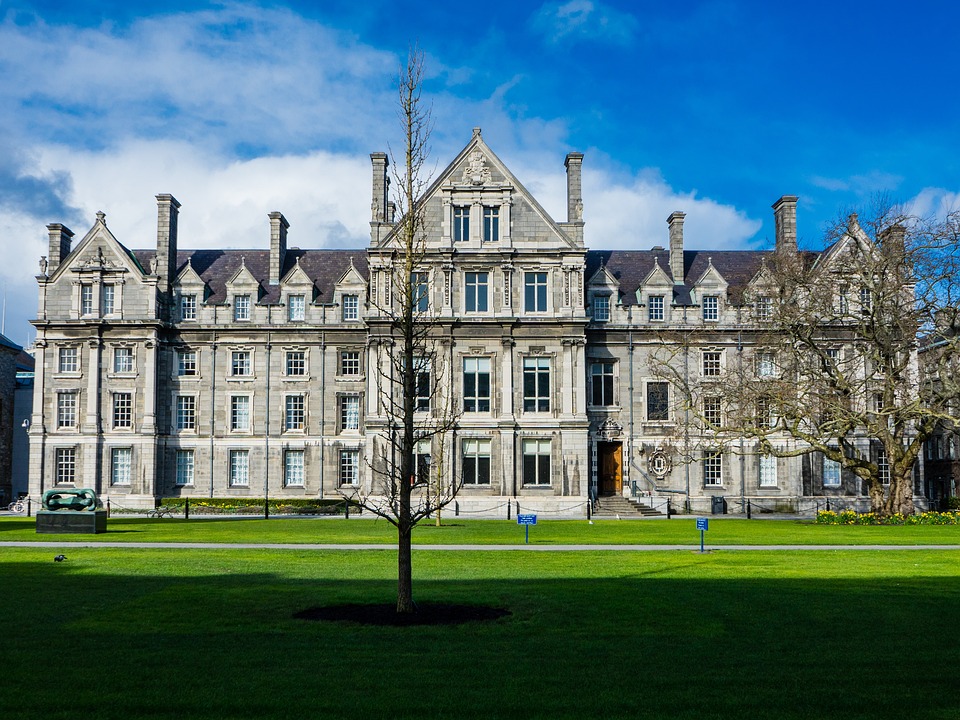Five Countries Opening Doors: Free University Education for African Students in 2025
For many ambitious African students, the dream of pursuing higher education abroad often collides with the harsh reality of exorbitant tuition fees and living expenses. However, the landscape is shifting, with several countries offering pathways to free or significantly subsidized university education, leveling the playing field and empowering students from across the African continent. As we look towards 2025, five nations stand out as beacons of opportunity, committed to fostering international collaboration and investing in the future generation of African leaders and innovators.
This article delves into these five countries – Germany, Norway, Finland, Sweden, and Austria – exploring the specifics of their free or low-cost university programs for international students, particularly those from Africa. We’ll examine eligibility criteria, program structures, potential challenges, and the overall impact of these initiatives on both the students and the host countries.
1. Germany: A Hub for Engineering and Sciences
Germany has long been a popular destination for international students, and its commitment to accessible higher education makes it particularly attractive for African students. While tuition fees were reintroduced in some federal states for non-EU students, a significant portion of German universities still offer tuition-free education to all students, regardless of their nationality, for undergraduate and postgraduate programs. This commitment is particularly evident in subjects like engineering, sciences, and humanities, areas where Germany boasts a strong reputation.
Key Features:
- Tuition-Free Universities: Many public universities across Germany offer tuition-free programs. Students are generally required to pay a semester contribution (Semesterbeitrag), which covers administrative costs, student services, and often public transportation within the region.
- Variety of Programs: A wide range of programs are available in English and German, catering to diverse academic interests and career aspirations. From mechanical engineering to international relations, German universities offer comprehensive and rigorous curricula.
- Emphasis on Research: Germany is a leader in research and development, providing students with access to state-of-the-art facilities and opportunities to participate in cutting-edge research projects. This is particularly appealing for students aiming to pursue careers in academia or innovation.
- Eligibility Criteria: To be eligible for admission, students typically need to meet academic requirements, demonstrate proficiency in either English or German (depending on the program), and possess a valid visa and residence permit.
Challenges and Considerations:
- Language Barrier: While many programs are taught in English, learning German is highly recommended for daily life, social integration, and potential career opportunities post-graduation.
- Competitive Admission: Popular programs and universities can be highly competitive, requiring excellent academic records and strong letters of recommendation.
- Cost of Living: While tuition is free, students need to cover their living expenses, including accommodation, food, and other personal costs. However, Germany offers various scholarship opportunities and part-time job options to help students manage their finances.
2. Norway: Nature, Innovation, and Social Responsibility
Norway distinguishes itself with a strong emphasis on environmental sustainability, social equality, and technological innovation. This commitment extends to its education system, where public universities offer tuition-free education to students from all countries, fostering a diverse and inclusive learning environment.
Key Features:
- Tuition-Free Public Universities: Education is considered a public good in Norway, making public universities tuition-free for all students, regardless of their nationality.
- Focus on Specialized Fields: Norway excels in fields like marine engineering, petroleum technology, environmental science, and renewable energy, attracting students seeking specialized expertise in these areas.
- High Quality of Life: Norway consistently ranks high in global quality of life indices, offering a safe, clean, and supportive environment for students.
- Small Class Sizes: Many Norwegian universities prioritize small class sizes and close interaction between students and professors, fostering a collaborative learning environment.
Challenges and Considerations:
- Limited Programs in English: While some programs are offered in English, the majority are taught in Norwegian. Learning the language is crucial for full participation in academic and social life.
- High Cost of Living: Similar to Germany, Norway has a high cost of living, requiring students to budget carefully and explore financial aid options.
- Climate and Culture: Adapting to the Norwegian climate and culture may require some adjustment for students from warmer regions.
3. Finland: Education Innovation and Technological Advancement
Finland consistently ranks among the top countries in the world for its education system. Known for its innovative teaching methods, focus on student well-being, and emphasis on practical skills, Finland offers free tuition for non-EU/EEA students pursuing doctoral-level studies. While bachelor’s and master’s programs generally have tuition fees for non-EU/EEA students, numerous scholarship opportunities are available.
Key Features:
- Free Doctoral Studies: Doctoral programs are typically tuition-free for all students, regardless of their nationality, offering a pathway for African students seeking advanced research opportunities.
- Innovative Teaching Methods: Finnish education emphasizes student-centered learning, critical thinking, and problem-solving skills, preparing students for the challenges of the modern workforce.
- Strong Technology Sector: Finland boasts a thriving technology sector, providing students with opportunities to gain valuable experience in areas like software development, mobile technology, and game design.
- Focus on Student Well-being: Finnish universities prioritize student well-being, offering comprehensive support services, including counseling, healthcare, and career guidance.
Challenges and Considerations:
- Tuition Fees for Bachelor’s and Master’s: The introduction of tuition fees for non-EU/EEA students pursuing bachelor’s and master’s programs can be a significant barrier for some. However, scholarships are available.
- Language Barrier: While English is widely spoken, learning Finnish is beneficial for integration and career prospects.
- Cultural Differences: Adapting to the Finnish culture, which values independence and privacy, may require some adjustment.
4. Sweden: Sustainability, Equality, and Design
Sweden is known for its progressive social policies, commitment to sustainability, and innovative design. While tuition fees were reintroduced for non-EU/EEA students, a substantial number of scholarships are available, making Swedish universities accessible to talented students from Africa.
Key Features:
- Scholarship Opportunities: Swedish universities offer a wide range of scholarships specifically targeted towards international students, including those from Africa.
- Focus on Sustainability: Sweden is a global leader in sustainability, with universities offering programs in environmental science, renewable energy, and sustainable development.
- Innovative Design and Technology: Sweden boasts a thriving design and technology sector, offering students opportunities to study areas like industrial design, architecture, and computer science.
- English-Taught Programs: Many programs are taught in English, making it easier for international students to access Swedish higher education.
Challenges and Considerations:
- Tuition Fees for Non-EU/EEA Students: The introduction of tuition fees can be a significant barrier.
- Competitive Scholarship Applications: Scholarship applications are often highly competitive.
- Cost of Living: The cost of living in Sweden is relatively high.
5. Austria: Music, Arts, and Humanities
Austria, renowned for its rich cultural heritage, especially in music and the arts, offers significantly subsidized tuition fees for all international students at its public universities. While not completely free, the fees are considerably lower than those in many other European countries and North America, making it an attractive option for students seeking affordable, high-quality education.
Key Features:
- Low Tuition Fees: Public universities in Austria charge relatively low tuition fees for all students, including those from Africa.
- Strong Arts and Humanities Programs: Austria boasts renowned programs in music, fine arts, literature, and philosophy, attracting students with a passion for the arts and humanities.
- Central European Location: Austria’s central location in Europe provides students with easy access to other European countries and cultures.
- Cultural Richness: Austria offers a vibrant cultural scene, with numerous museums, theaters, and concert halls.
Challenges and Considerations:
- German Language Requirement: While some programs are offered in English, proficiency in German is generally required for admission to most programs.
- Bureaucracy: Navigating the Austrian bureaucracy can be challenging for international students.
- Cost of Living: While tuition fees are low, the cost of living in Vienna and other major Austrian cities can be relatively high.
Conclusion: A Bright Future for African Students
The commitment of Germany, Norway, Finland, Sweden, and Austria to providing accessible higher education opportunities is paving the way for a brighter future for African students. By offering free or low-cost tuition, these countries are empowering talented individuals to pursue their academic aspirations, contribute to global knowledge, and ultimately return to their home countries to drive development and innovation. While challenges remain in terms of language barriers, cultural adaptation, and cost of living, the benefits of studying in these countries far outweigh the difficulties. As we approach 2025, these five nations stand as inspiring examples of international collaboration and a testament to the transformative power of education. The doors are open, and the opportunities await. African students ready to embrace the challenge and embark on this journey can look forward to a rewarding and enriching experience that will shape their lives and contribute to a more equitable and prosperous future for the continent.




